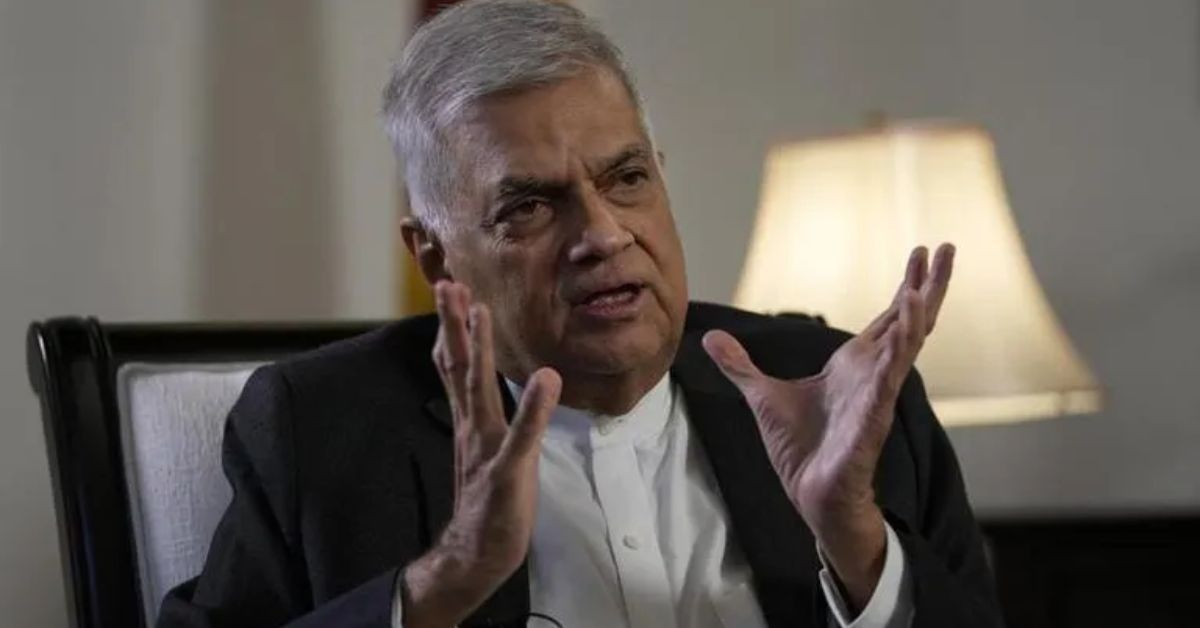Former Prime Minister Mahinda Rajapaksa’s office said on February 1 last year that his government has decided to run the Colombo Port’s Eastern Container Terminal (ECT) as a fully-owned operation of the state-run ports authority
Sri Lanka must use its ports and strategic location for its economic growth, President Ranil Wickremesinghe said on Friday while expressing regret over scrapping of the country’s trilateral deal with India and Japan to develop the Colombo Port’s Eastern Container Terminal.
Former Prime Minister Mahinda Rajapaksa’s office said on February 1 last year that his government has decided to run the Colombo Port’s Eastern Container Terminal (ECT) as a fully-owned operation of the state-run ports authority.
India, Japan and Sri Lanka inked an agreement in 2019 on the development of the Eastern Container Terminal project.
“Our strategic location is also a means of enhancing our economic prospects. Firstly, our location says we should be a logistics centre with three good harbours,” he said.
Wickremesinghe said it was regrettable that the trilateral agreement with India and Japan to develop the ECT was scrapped.
“Last time when I was the Prime Minister, I wanted to push it forward. We had an agreement on the East Terminal with Japan and India. We cancelled it. It is still lying there. The port is unable to run. We haven’t got the money,” he said.
The state-owned Sri Lanka Ports Authority (SLPA) signed a memorandum of cooperation in May 2019 with India and Japan to develop the ECT during the previous Sirisena government.
The Colombo port trade unions opposed the proposal of investors from India and Japan to buy a 49 per cent stake in the ETC. They demanded that the ECT be owned 100 per cent by the SLPA.
They claimed that the proposed deal with India’s Adani Group was a sell-out of the ECT. The Adani Group was later handed over the Western Terminal development.
Former President Gotabaya Rajapaksa had declared that he wanted the India-Japan deal on the ECT to go ahead.
However, after a week of protest, Prime Minister Mahinda Rajapaksa agreed to scrap the deal, prompting India to demand Sri Lanka abide by its commitment to the trilateral deal with it and Japan.
Japan also conveyed its unhappiness with the Sri Lankan government.
Wickremesinghe said the port development would enable Sri Lanka to “be the feeder port for Pakistan, India, and Bangladesh”.
“We had the Hambantota Port. When the Belt and Road initiative is complete, the Hambantota Port will link to several Chinese ports, which have been built by Chinese companies in Africa and some of the other ports.
“Look at the opportunities we have. And now we are looking at the Trincomalee Port to work with India, which will service the Bay of Bengal. Those are new opportunities,” he said.
Wickremesinghe said the population of these regions will increase “just from Pakistan onwards to Indonesia by about 400 or 500 million by 2050. Asia, the Middle East and Africa will have an even larger growth”.
Outlining his reforms for economic recovery, Wickremesinghe said that the government should handle the task of providing for the people and focusing on the health, education, housing and welfare sectors.
“Running businesses should be handled by the private sector, the government cannot get involved in running businesses,” he said.
“We are in the middle of an unprecedented financial crisis, which many countries in the world have not faced. We went into this because we followed the wrong policies. We were thinking of policies, not of practical results,” he added.
Sri Lanka, a country of 22 million people, plunged into financial and political turmoil earlier this year as it faced a shortage of foreign currencies. It declared bankruptcy in mid-April and has suspended repaying its $51 billion foreign debt, of which it must repay $28 billion by 2027.
India has provided a lifeline to Sri Lanka by granting assistance worth $4 billion to pay for fuel and essential commodities.







